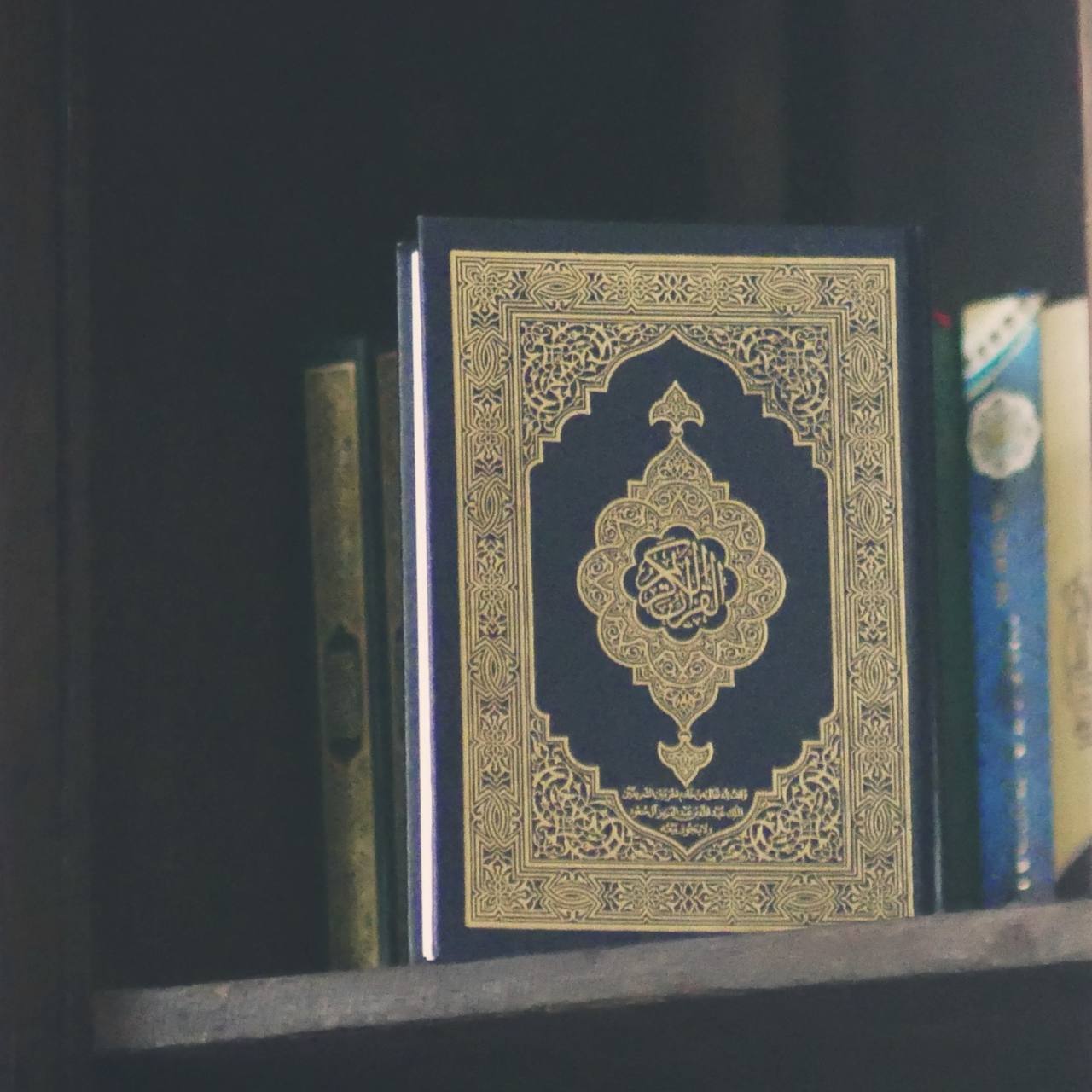The sacred month approaches, bringing with it grand opportunities.
In a time where hearts yearn to transcend worldly matters and the desires of the soul, rescuing their owners from the quagmires of weariness and ennui, one is either embraced in triumph, or deprived in loss.
Contemplate with me upon this profound discourse and ponder its meanings, which instill awe in the hearts: (Abu Huraira reported: The Prophet, peace and blessings be upon him, ascended the pulpit and he said, “Amin, amin, amin.” It was said, “O Messenger of Allah, you ascended the pulpit and said amin, amin, amin.”
The Prophet said, “Verily, Gabriel came to me and he said: “Whoever reaches the month of Ramadan and he is not forgiven, then he will enter Hellfire and Allah will cast him far away, so say amin” I said amin).
(Narrated by Ibn Khuzaymah and Ibn Hibban in his Sahih, and the wording is his).
To realize that the matter is grave and not to be trifled with!
Great concepts and dazzling rulings indeed:
In the month of Ramadan, there are profound concepts and dazzling rulings that warrant contemplation. For Allah has ordained fasting to elevate souls, purify hearts, and cleanse both bodies and spirits.
As the month of Ramadan approaches, it brings with it a sense of relief, and tranquility descends upon those who approach it with their hearts and limbs, honoring the rites of their Lord, declaring servitude to Allah alone, without any partners, glorified is He, steadfast upon His righteous path, reiterating their commitment LGuide us to the straight path -The path of those upon whom You have bestowed favor, not of those who have earned [Your] anger or of those who are astray).
(Al-Faatiha : 6-7)
«The souls are cleansed by the spirit of this month,
It’s the piety from which protection emanates».
The month of seriousness and action has indeed arrived, a month wherein the believer leads oneself with the utmost guidance for the finest ascent, deserving thereby the description of the astute leader who adeptly exploits opportunities.
How could it not be, for it is a month wherein acts of worship are magnified, merits are multiplied, sins are expiated, the gates of heavens are opened, the mischief of devils is restrained, and Muslims show compassion towards one another—a month designated by Allah for the Quran, as Allah said: “The month of Ramaḍān [is that] in which was revealed the Qur’ān, a guidance for the people and clear proofs of guidance and criterion”.
(Al-Baqara : 185)
A month designated for forgiveness and repentance.
The Prophet (ﷺ) as saying: “If anyone fasts during Ramadan because of faith and in order to seek his reward from Allah, his previous sins will be forgiven to him”.
[Agreed upon].
And he who contemplates the narrations and verses that mention fasting and its virtues would not be surprised by the eagerness of Muslims to worship fervently in this great month since Allah ordained the fourth pillar of Islam.
It was narrated from Abu Hurairah that the Messenger of Allah said:
“There is no good deed that the son of Adam does, but between ten and seven hundred Hasanahs will be recorded for him.
Allah, the mighty and sublime, said:
“Except fasing, for it is for me and I shall reward for it; He gives up his desires and his food for my sake.
Fasting is a shield, and the fasting person has two moments of joy.
One when he breaks his fast and another when he meets his Lord.
And the smell that comes from the mouth of the fasting person is better before Allah than the fragrance of musk”.
[Agreed upon].
We are unable to present all the texts that mention the virtues of Ramadan, but we find it imperative to remind of the importance of welcoming the month this year with a divine intention and the aspiration of Quranic devotees whose hearts are illuminated with the sweetness of faith; eagerly seeking the permanent degrees of elevation and bliss with Allah.
“A camp of training and inspiration”:
It is incumbent upon every Muslim to prepare and sharpen their resolve for the competition in the blessed month of Ramadan.
We speak of a camp of self-training, that a Muslim enters to rectify their condition, their acts of worship, and their relationship with their Creator.
A camp where they begin with mastering acts of worship, diversifying acts of obedience, disciplining the self, adorning themselves with virtues and the etiquettes of the divine, completely abstaining from all forms of injustice to the self, sins, moral vices, foul speech, trivial matters, indulgence in sin, transgressing the bounds set by Allah, and engaging in idle talk.
The Prophet (ﷺ) said, “If one does not eschew lies and false conduct, Allah has no need that he should abstain from his food and his drink”.
(Narrated by Al- Bukhari)
«When no complaint escapes my lips,
And my eyes are lowered, my words silent,
Then my fasting is truly hunger and thirst,
For if I claim to fast, I have not truly fasted».
“It is indeed a trial of sincerity with oneself; to merit the grace of acceptance after a few numbered days, and to demonstrate your ability to overcome obstacles, avoid the snares of Satan, conquer the inclinations of evil, and rectify oneself. It suffices to accept the determination of the persevering one towards the gardens of repentance and righteousness.
With the succession of trials and calamities, and the prevalence of epidemics and diseases, it is incumbent upon every Muslim to enter the blessed month of Ramadan with a farewell approach, inspired by the footsteps of his leader and prophet, Muhammad (peace be upon him), hastening in acts of goodness, remembrance, and seeking forgiveness, not belittling any kindness and not trivializing sin, no matter how minor it may seem in his own eyes or in the eyes of people.
The Messenger of Allah (peace be upon him) used to increase his charity in the month of Ramadan, and increase his prayers and recitation of the Quran, and he used to recommend breaking the fast of the fasting ones, and showing kindness to the poor and needy in a cohesive society, where the structure is strong and firm.
Undoubtedly, the believer’s approach in this month to virtues, acts of obedience, and worship must begin with sincerity to Allah, exalted be He, and transcending from showing off and self-admiration, purifying oneself. This is because he is a repentant servant seeking forgiveness for his past sins.
Out of Allah’s mercy towards His servants and His wisdom, He designated the last ten nights of Ramadan as the best nights of the year, among which is a night better than a thousand months, known as the Night of Decree.
It Is imperative for the earnest supplicant to intensify his efforts during it, seeking the best of outcomes, having had the opportunity to prepare for it since the beginning of Ramadan.
Aishah (May Allah be pleased with him) reported:
“When the last ten nights (of Ramadan) would begin, the Messenger of Allah (ﷺ) would keep awake at night (for prayer and devotion), awaken his family and prepare himself to be more diligent in worship”.
(Agreed- Upon)
“Ramadan: Historical Milestones”
The sacred month of Ramadan has been distinguished since the dawn of Islam by its esteemed status in the lives of Muslims, as they revere the obligations of Allah and recognize the immense reward awaiting those who compete in it, seizing the opportunities for spiritual elevation and closeness to the Most Merciful.
It has been a month marked by pivotal moments in the history of this nation: witnessing the pivotal Battle of Badr, the first decisive victory in Islam, and the conquest of Mecca, the most significant conquest for Islam, a clear triumph.
Subsequent to these events, there were pivotal battles and locations:
The Battle of Buwayb in Iraq under the leadership of Al-Muthanna bin Haritha.
The conquest of Andalusia by Tariq ibn Ziyad, the Battle of Tours in France led by Abdul Rahman Al-Ghafiqi.
The conquest of Amorium during the reign of Al-Mu’tasim bi’llah Al-Abbasi, the Battle of Ain Jalut led by Sultan Al-Muzaffar Qutuz, who dealt a severe blow to the Mongols.
The Battle of Shaqhab against the Mongols in the time of Ibn Taymiyyah.
Additionally, there was the conquest of Cyprus during the Mamluk era.
Along with numerous other significant victories and achievements, illustrating that Ramadan has always been a month of labor, diligence, and striving to build this nation and uplift it, not a month of idleness, complacency, and sleep.
“Supplication in Ramadan: A Believer’s Opportunity”:
O Muslim, you are approaching a month wherein your skills are honed, meticulously refining yourself and your actions with splendid management, reclaiming your authority over them and ascending to lofty ranks, conquering your desires and mastering them.
Your struggle therein Is a struggle against the self, with your aim being the ranks of the divine, attained by overcoming your weaknesses, desires, and all injustices.
Such victory cannot be achieved without fervently invoking Allah, like the devoted believer, confident in His response.
Allah said: “And when My servants ask you, [O Muḥammad], concerning Me – indeed I am near, I respond to the invocation of the supplicant when he calls upon Me, So let them respond to Me [by obedience] and believe in Me that they may be [rightly] guided”.
Reflect upon the multitude of supplications you reserve to recite sincerely to Allah, entreating Him earnestly.
Consider the urgency and gravity of your needs; how then will you beseech them from your Lord? Surely, it must be done with the utmost propriety and sincerity.
If you have grievances of injustice, then the month of Ramadan presents your golden opportunity for supplication and seizing its virtues.
It was narrated from Abu Hurairah that the Messenger of Allah ﷺ said:
“There are three whose supplications are not turned back: (A just ruler, and a fasting person until he breaks his fast, And, the supplication of one who has been wronged)”.
(Narrated by Ahmad, Al-Tirmidhi, Al-Nasa’I, and Ibn Majah)
And I do not deem it prudent for a rational being to abstain from supplication and entreating to God, seizing the hours of response, that Allah may alleviate from us the severe calamities afflicting the Islamic nation, and the great trials that have befallen us.
So implore Allah with a plea of necessity, touched by affliction, and beseech Him with the hope of a poor, weak, needy individual.
How many refugees wander aimlessly, how many fearful ones remain unassured, how many oppressed prisoners suffer, how many are despondent with life, how many downtrodden are burdened, how many orphans and widows suffer, how many workers are in need of righteous supplication, and how many warriors in the frontlines resist unjust aggression— so many, each deserving of your remembrance in your prayers, just as you pray for yourself, your family, and those you love.
The Messenger of Allah ﷺ said, “Whenever a Muslim supplicates for his (Muslim) brother in his absence, the angels say: ‘May the same be for you too’.”
And in another narration, “The supplication of a Muslim for his (Muslim) brother in his absence will certainly be answered, Everytime he makes a supplication for good for his brother, the angel appointed for this particular task says: ‘A meen! May it be for you, too”.
(Narrated by Muslim).
Your foremost priority should be to attain a spiritual state:
Indeed, your utmost priority in this blessed month should be to attain a spiritual state, directing your entirety, not just a part of yourself, towards God.
Let your limbs humble themselves, your eyes shed tears, and your heart crack open at the verses, during prostrations, and moments of contemplation and supplication.
For Ramadan is not merely about hunger and thirst, but about repentance and piety.
It was narrated from Abu Hurairah that the Messenger of Allah (ﷺ) said:
“There are people who fast and get nothing from their fast except hunger, and there are those who pray and get nothing from their prayer but a sleepless night”.
(Narrated by Al-Nasa’I and Ibn Majah Al-Hakim, who said it is authentic according to Al-Bukhari’s conditions).
The divine objective Is to fulfill the word of Allah: “O you who have believed, decreed upon you is fasting as it was decreed upon those before you that you may become righteous”
(Al-Baqara : 183).
Here lies the distinction between those who approach Ramadan believing it to be merely a cessation from food and drink during daylight hours, and those who adhere to the Quran through contemplation and recitation, recognizing that piety is both an end and a means simultaneously.
So, O seeker of the divine, the foremost secret in adhering to the Book of God is for the Quran to be the catalyst for you to transform your reality and that of your community.
Respond to its commandments and prohibitions, comprehend its lofty objectives, and let love for God and the believers beat within your chest, igniting within you ambition and resolve, as you set forth as a worker for God with clear insight.
Indeed, the worship of God in Ramadan is not mere slogans and resonant phrases, nor is it merely about food habits and following television programs or staying up late.
It Is an earthquake that strikes the heart, shaking off the accumulated dust of neglect, a migration to God in sincerity, abandoning evil and immersing oneself in goodness, forsaking trivial matters and ascending to higher virtues.
It Is a worship that elevates you into the realm of the heavens and the earth, where you realize the meaning of monotheism, sincerity, and seeking refuge in God, your Protector.
It marks a new beginning that compensates for your losses, heals your wounds, and propels you forward equipped with the best provision—piety.
Worship that imbues you with greater strength, discipline, and capability in performance, accomplishment, and the cultivation of goodness, while freeing you from all evil or doubts thereof.
“The godly in the Quran and Sunnah”:
It behooves us to contemplate the description of the godly in the Noble Quran, which is adorned with numerous complementary attributes.
Allah said: “And how many a prophet [fought in battle and] with him fought many religious scholars, But they never lost assurance due to what afflicted them in the cause of Allāh, nor did they weaken or submit, And Allāh loves the steadfast”.
Their characteristic was steadfastness in jihad and patience in adversity.
Allah said: “Indeed, We sent down the Torah, in which was guidance and light. The prophets who submitted [to Allāh] judged by it for the Jews, as did the rabbis and scholars by that with which they were entrusted of the Scripture of Allāh, and they were witnesses thereto”.
(Al-Maaida : Part of the verse : 44).
Their hallmark was their eagerness to uphold the divine law and establish the faith.
And Allah said: “Why do the rabbis and religious scholars not forbid them from saying what is sinful and devouring what is unlawful? How wretched is what they have been practicing”.
(Al-Maaisa : 63).
Their defining trait was enjoining good and forbidding evil.
And Allah said: “It is not for a human [prophet][134] that Allāh should give him the Scripture[135] and authority and prophethood and then he would say to the people, “Be servants to me rather than Allāh,” but [instead, he would say], “Be pious scholars of the Lord because of what you have taught of the Scripture and because of what you have studied”.
Their characteristic was the teaching of their Lord’s scripture, studying it, and the eagerness to seek knowledge and act upon it, thus constructing the spiritual self and that of others.
Similarly, the noble Prophetic Sunnah shed light on the attributes of the divine, including his possession of jurisprudence and wisdom.
Ibn Abbas -may God be pleased with him- said: “Be rabbaniyun: wise and learned. And it is said: “the rabbany is the one who raises people with little knowledge before great knowledge.”
Ibn Hajar, may God have mercy on him, said: “By ‘the small of knowledge’ is meant what is clear in its issues, and by ‘the great’ is meant what is intricate. It has been said: they teach them the details before the general principles, or the branches before the fundamentals, or the introductions before the objectives…”
It has been narrated from Ali, may God be pleased with him, describing the divine as those: “who nourish people with wisdom and raise them upon it”.
In Ibn Masud’s interpretation of the verse “But be rabbaniyin” (Quran 3:79), he said: wise scholars.
In the interpretation of the verse “Why do their scholars and rabbaniyin not forbid them from saying what is sinful?” (Quran 5:63), Sayyid Qutb, may God have mercy on him, said: “This characteristic, the trait of silence of those responsible for religious affairs and religious knowledge about the sins and transgressions occurring in society, is the characteristic of societies that have become corrupt and are on the brink of collapse”.
Every individual today is required to strive to attain the honor of the rank of the divine, whether in the position of guidance, invitation, and education, or in the position of learning, receiving, and building, whether from the elite or from the common people.
Allah said: “indeed, We will not allow to be lost the reward of any who did well in deeds”.
(Al-Kahf : 30).
Ibn Taymiyyah, may God have mercy on him, said: “And the glorification of one man is better than the fill of the earth with the deeds of others”.
The divine is a warrior in the path of his Lord, a seeker of knowledge and wisdom, sincere, righteous, his provision is patience and perseverance, good upbringing and treatment, his connection with the heavens is strong, and there is no better time than the month of Ramadan to achieve that.
“Divine individuals persevere until the last breath”:
Reflect with me when it was said to the barefooted Bishr al-Hafi: “There are people who strive and worship God Almighty in Ramadan alone?” He said: “Wretched indeed are those who do not know God truly except in Ramadan”.
A divine being cannot fall into this misery, but emerges from Ramadan seasoned in the arts of striving for God until the last moment, renewing his faith and intentions, perceiving the opportunities and moments of virtue, never missing them, nor allowing himself to regress or return to the circles of confusion and frivolity after having seen the light and felt his heart beat with the love of God Almighty.
You will not be divine unless the Quran brings about an internal change in you, the effects of which will manifest in steadfastness after Ramadan, driven by certainty, accountability, and a relentless pursuit of improvement that knows no defeat.
Allah said: “Allāh keeps firm those who believe, with the firm word, in worldly life and in the Hereafter And Allāh sends astray the wrongdoers And Allāh does what He wills”.
(Ibrahim : 27).
Thus, the journey of the numbered days of the blessed month of Ramadan is a journey of crafting a hero who has prepared diligently to face the battles of life, connected to the divine guidance, discerning and enlightened by the verses of the wise scriptures, driven by longing for our ultimate abode in the eternal bliss and perpetual pleasure.
O Allah, make us among Your divine servants who listen to the word and follow the best of it, those who race in the path of Your pleasure and Your gardens.
O Allah, You are the Forgiver, You love forgiveness, so forgive us.
O Allah, if there is no anger upon us from You, then we do not worry.
O Allah, decree us among those accepted in the month of Ramadan and on the Night of Decree.
Allah said, “And turn to Allāh in repentance, all of you, O believers, that you might succeed”.
(Al-Noor : 31)
Translated by Khadija for To the worlds
The article is in Arabic:
كيف نكون ربانيين في رمضان؟
How can we pious scholars of the Lord during the month of Ramadan? PDF




I’ve learned so much from this blog and have implemented many of the tips and advice into my daily routine Thank you for sharing your knowledge!